- Offensive Techniques & Strategies
Coaching Prerequisites
What to Discover or Recall:
Comprehend that coaching is all about the players, not the coach.
Realize that coaching requires real commitment and dedication.
Comprehend the magnitude of responsibilities and liabilities that go along with coaching.
Discover that coaches must not only possess the knowledge of the game and how to teach it, but they must also possess the enthusiasm and enjoyment for doing it.
Understand the magnitude and responsibility of player safety and injury prevention.
Realize the importance of ALL of your players in having a beneficial and rewarding basketball experience. Discover that the real success in coaching comes with the teaching and assisting all of your players to become the best they are capable of becoming “On” and “Off” the court. Not winning.
Before You Step Out Onto the Court
| Commitment| Time | Demeanor | Team Atmosphere | Winning | Communication | Teaching | Personal Liability | Player Safety | Training | Rule Knowledge | | Best Effort |
Coaching Commitment
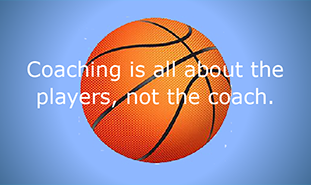
If you treat a man as he would be and could be, he'll become what he could be and would be; if you treat him as if he is, he'll remain as he is. --- Johann Wolfgang von Goethe
Being a coach carries awesome power and responsibility. It requires a real commitment of time and dedication. Before you step out onto the court, be sure that you understand the full magnitude of the responsibilities and liabilities that go along with coaching. As a coach, you may not reap the immediate rewards of the hours put into player development. Since players develop at different rates and ages, be sure to develop all of your players to the best of their capabilities. Wins and losses come and go, but you only get one chance to develop a player’s skills. Don’t waste that opportunity.
Time Commitment

Coaching is a very time consuming endeavor.
There will never be enough hours in the day. Therefore, making the most of the time that you have is vital. In almost all cases, the real problem is not a lack of time, but actually a poor usage of time. In addition to a well throughout program master, time management and efficiency is a key ingredient to any success. With proper time management you can get more things done, in less time, and with less stress.
Getting More Things Done in Less Time
Here is an excerpt form Vicki Dennis's Successful Business article 'Where do all the hours go?' which gives seven excellent ways to save and use your time wisely:
IDENTIFY THE TIME WASTERS.
To save time you must first determine where you are losing it. Establish a record by recording, in detail, everything you do hourly for one to two weeks. Once completed analyze the log and eliminate the obvious time wasters and trivial.PLAN YOUR DAY.
The best way to avoid wasting future time is to make a daily "to do" list. Be specific about tasks. Include one hour block of uncommitted and no distractions time. Create the "to do" list late in the afternoon the day before, and then get things done the next morning before you can be distracted.SET PRIORITIES.
Prioritize your "to do" list (1., 2., 3., etc). Concentrate on the most important first.LEARN TO DELEGATE.
Rely on assistance. Give challenging as well as busy work to your assistants. However, in delegating you must be willing to teach others to perform the tasks. Delegating will take time at first; however, in the long run it is the best time saver.DECREASE INTERRUPTIONS.
Have calls and visitors screened. Avoid clutter, clear desk every evening. Start early (7:30 am). This is the most productive time of the day. Maintain a quite hour during the day. No calls, no visitors except for emergencies.SIMPLIFY PAPER WORK.
Stack according to priority. Informal, reply on a copy of the original letter or email. If possible, try to handle each piece of paper once. Filing, "What would happen if thrown away?"CONQUER PROCRASTINATION.
Set deadlines. Do the worst and quickest 'to do' tasks first.
For Printable Version - Click Here
Coach's Demeanor
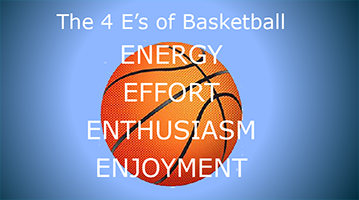
Players are influenced more by what you do than what you say.
A coach's appearance and demeanor sets the tone for a conducive, learning environment. Therefore, it is important that all coaches dress appropriately for practice. Be fully aware of the importance of positive body language. Earn the respect of all your players by being reliable, consistent and fair. Be early to all games and practices. Be organized and prepared. All practices should be well planned and executed. However, be flexible and ready to improvise. Sometimes even the best of well laid out plans can go awry or get disrupted. As a coach you must have patience. Players, on all levels of the game, are going to miss shots, make crucial turnovers, and commit needless fouls. They need the freedom to make mistakes. It’s the coach’s job to help players learn from those mistakes. That takes time and patience.
Team Atmosphere
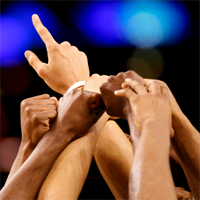
Guarantee your players that they are going to play in a team atmosphere. Inform them that you are not going to tolerate anyone on the team that keeps others from learning, you from coaching or any other misbehavior. Guarantee equal opportunity, but not equal time. Establish significant roles and assignments for every player on the squad. If you can't, then release them. Get rid of the non-workers. Great teams are a result of the best players being the hardest workers. No one steps on the floor without full hustle attitude. Insist on a team effort at all times.
Success & Winning
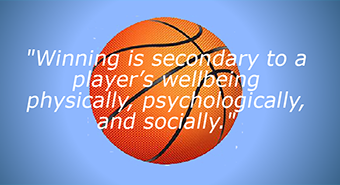
In recent years, winning has become the primary focus in sports. This is even true on the college and school levels where the emphasis should be on education and learning. Coaches and programs are being evaluated by the number of games won rather than their program model and teaching abilities. Constant full court games and tournaments, especially on the lower levels, have replaced teaching and skill development.
Winning basketball games is certainly a part of successful coaching. It is an immediate and very powerful objective. However, it is not the most important one. In the long term, winning is secondary to a player’s wellbeing physically, psychologically, and socially. When winning is kept in perspective, basketball is a wholesome and enjoyable activity where players strive to achieve personal goals.
Player success must be viewed in terms of achieving their own personal goals rather than surpassing the performance of others. Personal goals are specific performance related benchmarks rather, than goals concerning the outcome of games. The problem of not winning is that players learn from their coaches, parents, teammates and media to evaluate their performance and self-esteem in terms of winning and losing. This results in the belief that they can maintain their self-esteem only through winning.
With all the competitive pressures from parents and teammates, it is the coach who must help players achieve realistic goals. When coaches assist players in setting achievable goals, they inevitably experience more success and feel more competent. By becoming more competent, players gain confidence without the fear of failure. As a result, failure then just indicates that a player must try harder rather than indicating incompetency.
Communication
It's not enough to know your subject, you must also be aware of your player audience. Coaches must be good at explaining things. Communicate by keeping it simple. Talk to your players' level. Clarify rather than confuse. Tell them what you are going to teach them, then teach them, and finally, tell them what you taught them. Terminology is the only thing in the game of basketball that changes over time. Since players receive instruction from a variety of sources, it is very important that the entire coaching staff use the same offensive and defensive terms.
Be sure to teach your players to listen. It is imperative that any time a coach talks everyone listens (including assistant coaches). Demand and get eye contact of all players prior to speaking. Use positive reinforcement and point out successful performances rather than negative ones. Find reasons to keep players rather than reasons to cut. Use constructive criticism when appropriate, but never yell. Have you ever heard of a teacher yelling at his/her students? Be a role model and never use profanity. Educated people can express themselves very clearly without the use of profanity.
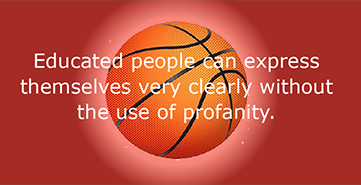
Teaching
Player performance is directly related to a coach's ability to teach. Therefore, before stepping out on the court, coaches should possess a solid working knowledge of the laws of learning and teaching methods. Coaches must not only possess the knowledge of the game and how to teach it, but they must also possess the enthusiasm and enjoyment for doing it and impart this energy to their teams.
Coaching requires a real commitment and dedication. Before undertaking any defensive system, coaches must be well organized and prepared. This requires careful planning and thought. Since most programs do not have a lot of practice time, it is imperative that coaches analyze and organize their time wisely. First identify which skills the players need to know, how well they need to know them, and under what conditions they are to do them.
Be sure to include the 'when' and 'why' along with the 'how' when teaching and developing player and team skills. There are certain fundamentals every player must master, and in addition each position also has specific fundamentals to learn. Teach using quick mental pictures. Use descriptive, one syllable words associated with the technique whenever possible. Do not over coach, keep your instructions simple.
To learn more about teaching - Click Here
Inherited Personal Liabilities
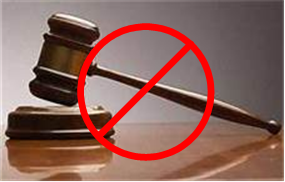
Coaches on all levels of the game, paid or volunteer, must be acutely aware of the legal ramifications and responsibilities that accompany coaching. These personal liabilities cannot be ignored or avoided. Criminal charges and civic lawsuits, no matter how frivolous and unjustified, are very serious matters that can be devastating and costly, even when they are won or dismissed.
Liability laws have been enacted to protect athletes and to provide for a safe and healthy environment. Examples of coaches’ personal liability can include: Failure to Stay within Job Description, Faulty Equipment or Usage, Insufficient Supervision, Inadequate Instruction, Failure to Act Prudently During a Medical Emergency, Failure to Report Harassment (Bullying), Hazing or Sexual Misconduct, Failure to Supervise Volunteers, and Improper Transportation.
Learn more about Coaching Liabilities & Responsibilities - Click Here
Injury Prevention and Player Safety
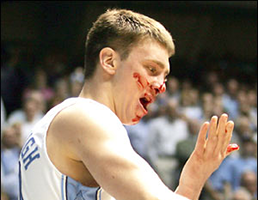
Unfortunately, in basketball injuries do occur. Most injuries will be minor. However, life threatening injuries can and do occur. Therefore, all coaches must be first aid trained and certified.
Create a list of players' emergency phone numbers and keep it available at all times.
Be fully aware of any health problems your players may possess.
Be extremely cautious when it comes to head, neck and back injuries.
Make sure that a first aid kit and supplies are available including ice or cool packs for every game and practice.
Adhere to the first aid adage, "An ounce of prevention is worth a pound of cure." Learn to be cognizant of potential dangers and hazards around the court area at all times.
CAUTION: Do not ever put players at risk. Players will insist on playing injured. However, no matter how big the game, never play an injured player without a doctor's permission or until they are fully recovered.
To learn more about Player Injury & Safety - Click Here
Training and Physical Conditioning
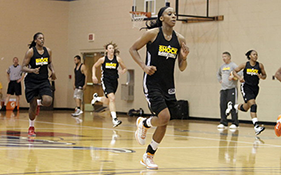
Player performance is dependent upon physical conditioning. Players are only as good as their legs. Superior conditioning does not just happen nor is it acquired quickly. It is the result of a well planned and executed program of exercise, rest, and diet. With rest and diet being just as important as exercise. Training is exacting and the responsibility is heavy. What is done off the court is as important as what is done on it. To be successful, each player as well as the team collectively, must possess the desire and determination to develop superior physical condition. Throughout the course of the season, the team will be pushed and trained hard. However, it is going to be up to each individual to see that their maximum physical condition is achieved and maintained. Anything less is a violation of a trust.
Because of the importance of physical condition and team morals to a successful season, willful violations of the training code cannot be tolerated or ignored. It is going to be up to "team pressure" to see that the code is adhered to and followed. Coaches are not policemen or detectives. Any player who breaks training not only betrays themselves, their teammates, their coaches, their followers, and everything basketball stands for, they are also cheating their Maker that gave them the ability to be a success. If any player shows disloyalty to all these and does not feel guilty, they do not belong in the basketball world, let alone on your team.
To learn about the benefits of Physical Conditioning & Training - Click Here
Rule Knowledge
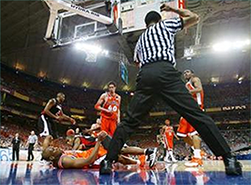
Off the court, know and adhere to the school or organization, and conference coaching rules and regulations. Make sure parents and players also know the rules, as to participation, eligibility, physical exams, insurance, injuries, transportation, and team rules. On the court, know the official Rules of the game, especially the new ones. Do not assume that players know and understand the rules. Games and championships are lost simply by players not knowing the rules. Knowing the rules of the game will definitely win or save at least one game during the season.
Abide by the rules. There is no joy or satisfaction in a tainted victory. Players must be taught to play hard and fair at all times. Fairness is what athletics and basketball are all about. Basketball records are a matter of personal pride. However, your record as a person and teacher is the most important record of all. Set an example. Have a positive rapport with officials. Set the right example for your team by never arguing a call or disrespecting an official. Officials will not respond positively if you try to bully or intimidate them. Instead, act like an adult and coach through adversity and bad calls. Learning how to play through adversity, such as bad calls, is an important part of basketball. A call, no matter how bad, can be simply erased by making a defensive stop on the next possession. Successful coaches anticipate and coach in the future. Complaining or arguing about a bad call, just puts you in the past compounding the situation. If you want to officiate the game, put on a striped shirt.
Review the official Rules of the Game - Click Here
Giving Your Best Effort

"You never lose a game -- you only run out of time."
"Winning is the only thing!" This may be true on the professional level, however, on all other levels of the game of basketball giving your best effort is of the utmost importance. As long as you and your players give their best efforts at all times, you will be the real winners regardless of the score.
Winning is not an end product. But, rather, a by-product of execution of fundamental basketball skills and player effort. If you shoot, dribble, pass, rebound, and play defense well you don't have to look at the scoreboard to see who is ahead. Great coaches are great teachers.
To return to Coaching Prerequisites - Click Here
To return to Coaching Strategies - Click Here
Return to HoopTactics' menu - Click Here
© 2024 HoopTactics All Rights Reserved.
